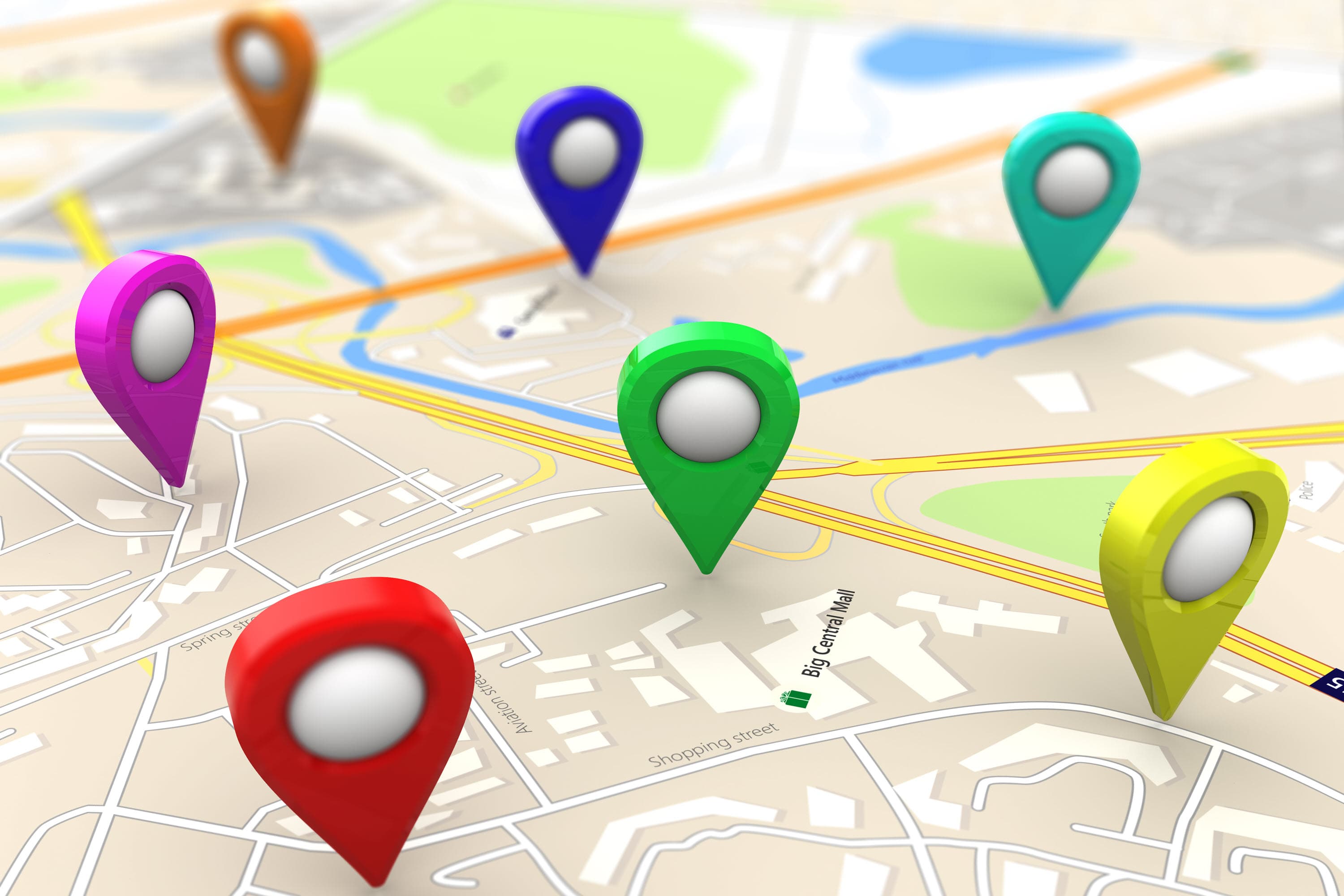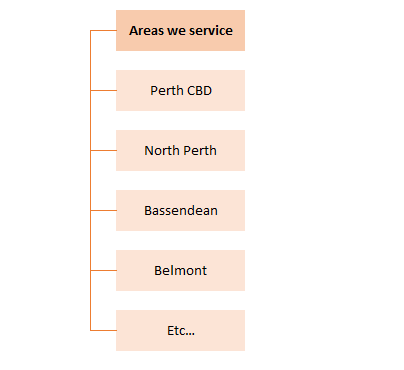
Most local businesses invest in SEO services to try to rank for macro local keywords on Google for a good reason but forget about the micro-level.
For many local businesses, such as plumbers, electricians, handymen, tilers and even accountants, there are a handful of keywords that take up most of the local search volume. Ranking on page one for these keywords has a monumental impact on website visitors, the number of leads and business performance in general.
It kind of makes sense, most people who need a product or service naturally type into Google the trade/product/service identifier + the location they live in. In most cases, people use the city as a location identifier because the search results show a wide variety of choices, however, there are also many people who are more granular in their search and go right down to the suburb level as a location identifier.
So, as we’ve just learnt, in most cases, popular search terms for local businesses consist of “service/product keyword + city”. I call this “macro local search”.
For example, “Plumbers Perth” = “trade identification keyword + city” This combination counts on average 3,600 searches on Google each month and tops the list of searches for plumbing relates keywords.
Due to the sheer search volume on this keyword, all plumbers naturally try to rank on the first page of Google for it. Hence why competition is very high and the difficulty to make your site rank for that keyword is also very high. But guess what? You either must be in the 3-pack underneath the map or you must make it into one of the 10 other available organic listing spots on the first page of Google.
Page two, three, four…, well, you are practically invisible.
Dominating microlocal keywords
Besides macro local keywords, what else should you consider ranking for?
Well, microlocal keywords of course. Microlocal searches include “trade/service/product keyword + suburb”.
Search volume is considerably lower, but it also means that competition is lower. Just like with macro location searches, intent on a micro-location level is extremely high. If someone types into Google “Plumbers Joondalup”, it basically screams “I need a plumber right now!” By the way, the search volume on this keyword is still fairly decent with 260 searches/month.
There are 355 suburbs in Perth. For example, if you’re a plumber, theoretically you could try rank for all 355 keyword variations that contain the word “plumber” + suburb.
Search volumes across each suburb are different and it might not make sense to put effort into ranking for a microlocal keyword if the search volume is too low or if the suburb doesn’t fall within your primary service area. So don’t go overboard, but focus on a select number of focus areas.
How to roll this strategy out in 4 simple steps
#1 How to do local keyword research
A good starting point to determine which suburbs have the most search volume and are worth going for is local keyword research.
Local SEO keyword research is the process or science of finding the most important keywords for a business and categorising them into groups of similar terms. We can also categorise keywords by searcher intent because usually, you want to use your product/service pages to rank for high volume and high intent keywords, whereas low volume or low intent keywords may be more suitable for a blog.
The best free tool to use for keyword research is Google’s very own Keyword Planner. We won’t go into detail here on how to use the keyword planner but you can check out this blog to learn more.
Essentially you want to find out about the search volume on various suburbs. Use an excel table to keep track of it too. Example:
Keyword | Search Volume/Month
- plumber joondalup | 260
- warwick plumbing | 110
- kalamunda plumbing | 260
- plumber maylands | 70
Once you decided on what suburbs you want to focus on, you can then go a little bit more granular and find all keyword variations to target. Example:
Keyword | Search Volume/Month
- plumber joondalup | 260
- joondalup plumber | 260
- blocked drains joondalup | 10
#2 Allocate & plan
Next you must plan what pages are required. You have the best chance of ranking well for microlocal keywords if you set up a unique page for each suburb.
The content of each page needs to be focused on the suburb you’re trying to target. Duplicate content as you may know is a big no go on Google’s terms so be sure to make each page unique.
Your planning should also account for a website structure that allows you to make each suburb web page accessible. A good way of going about it is to introduce a section or navigation menu item called “Areas we service” so that all suburb pages can be listed and linked up underneath that.
Example:

#3 Optimise your suburb page content for SEO (on-page)
So how to rank for local keywords?
Well, make sure you follow the best on-page SEO practices when creating a new page and ensure your focus on effective SEO copywriting. Here are the essential elements you need to consider for each of your microlocal keyword web pages:
- Include target keyword in the meta title & description
- Include target keyword in h1 and other titles
- Include target keyword in the first paragraph
- Include synonyms and similar keywords throughout the text
- Embed a Google map on the page that outlines the suburb
- Add calls-to-action, such as display of phone number, buttons or a web form to make it easy to book a service or enquire with your company
- Add internal links to existing blogs and other existing pages pointing to your new suburb page
#4 Implement the off-page SEO strategy
Even if competition is low or medium for your micro-location keyword, it’s not guaranteed you will take up the first page Google ranking spot automatically.
You might strike it lucky, but in general, it takes time for Google to figure out what page to prioritise in order to answer the searchers query best. If your page is optimised 10 times better than any other web page out there, you might have a decent chance of ranking on page one of Google over time.
However, what is more, likely is that you have some competition for your target keywords. Or you might not want to wait for your page to slowly crawl up the rankings on the search results page.
So what can you do to move the needle a bit faster? The definitive answer is to implement a backlink strategy. A great way of generating legitimate and targeted backlinks is to publish guest blogs on other websites that contain a link to your new micro-location page.
I want to implement this strategy, what’s next?
If you are comfortable with implementing this strategy yourself, we encourage you to give it a go.
However, if you’re busy like most business owners or if you still don’t know exactly how to go about it, we’re happy to advise you and help you with the implementation.
White Chalk Road can support you along each step outlined above, from keyword research right through to planning and implementing everything.
Get in touch now to discuss how you can dominate micro-location keywords.




